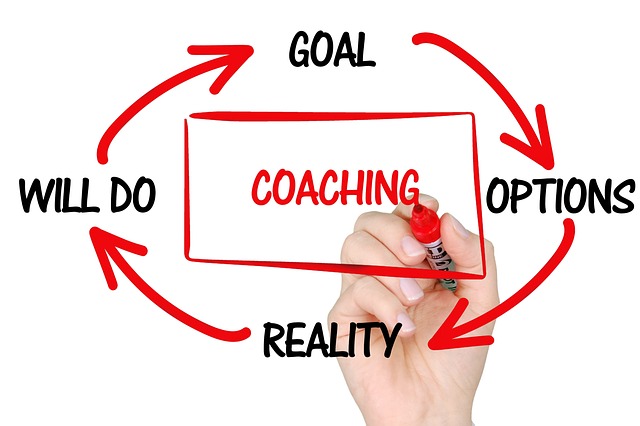Are you a business leader wondering if team coaching could be beneficial for your workplace? Have you heard of the concept, but aren’t quite sure what it entails and who it’s meant to help? If so, then this blog post is for you. Team coaching can have a powerful impact on collaboration and communication between teams, leading to better morale and improved results. In this post, we’ll discuss why team coaching is an important consideration for any business leader looking to maximise their team’s success. We’ll also look at how it works in practice, how much it costs, and cover some examples of successful applications in different businesses. By the end of the post, you should have a better understanding of whether or not team coaching might be right for your business. If you’re looking for a competent coach for your team, make sure to find one that has passed team coaching competencies ICF.
What is Team Coaching and how can it benefit your business
Team coaching is a collaborative approach that cultivates the growth of teams within a business. This type of coaching can benefit your business in numerous ways. Firstly, it fosters a sense of unity among team members, encouraging them to work towards a common goal. This, in turn, leads to improved communication and efficiency within the team. Additionally, team coaching enables team members to develop a sense of ownership and accountability in their work, which is crucial for the success of any business. By providing guidance and support, team coaches can help teams identify their strengths and weaknesses, and devise effective strategies to overcome obstacles. In short, investing in team coaching can prove to be a valuable tool for your organisation, helping you to build stronger, more effective teams and ultimately drive success.
Identifying the areas that need improvement in your team
As a leader, it is crucial to identify the areas that need improvement in your team in order to achieve success. It is not enough to simply acknowledge that there are areas that need work; you must also take action to address them. One effective strategy is to gather feedback from team members and identify patterns or themes that emerge. This can help you pinpoint the specific areas that are causing issues and develop a targeted plan for improvement. As you work to improve your team, remember that the journey toward success is a collaborative effort. By involving your team members in the process and empowering them to contribute their ideas, you can create a stronger, more cohesive team that is poised to achieve great things.
The importance of having a team-centred mindset for success
Success is not only achieved by individual efforts; it requires a team-centred mindset to reach new heights. Having a team-oriented approach helps to foster collaboration and create a sense of joint accountability, where each member takes ownership of their role in a project or task. This promotes a supportive work environment that encourages open communication, idea sharing, and constructive feedback. Furthermore, a team-centred mindset helps to maximise individual strengths and skills while minimising weaknesses. When everyone works as a team, the result is a synergy and a sense of shared accomplishment that motivates the team to do even better. It also leads to more innovative and efficient solutions. All these factors make having a team-centred mindset a crucial ingredient for achieving success in any endeavour.
Tips to ensure effective coaching sessions with your team
As a coach, your main goal is to help your team members reach their full potential. Effective coaching sessions are essential in achieving this objective. First and foremost, it’s crucial to establish a strong relationship with your team members. Through building a rapport, they are more likely to openly communicate their goals, challenges, and aspirations. It’s equally important to set clear expectations and objectives for each session. This means going beyond the usual generic goals and establishing specific, measurable, achievable, realistic, and time-bound (SMART) ones. Additionally, make sure that you listen attentively to what your team members have to say. Giving them your undivided attention demonstrates your respect and commitment to helping them succeed. Lastly, always keep things positive and focus on the progress made rather than the challenges faced. By following these tips, you can rest assured that your coaching sessions will be more productive and efficient.
How to measure the success of team coaching sessions
In the world of business, team coaching sessions are becoming increasingly commonplace. But how can you measure the success of these sessions? Firstly, it’s important to look at the team’s performance before and after the coaching. Are they more productive? Do they communicate better? Have they achieved their goals? Secondly, feedback from team members is crucial. How did they feel during the coaching sessions? Did they find it helpful? Finally, observe the team’s behaviour and interaction. Are they more collaborative? Do they share knowledge and skills more readily? By examining these factors, you’ll be able to identify the impact of team coaching and ensure it’s achieving your business objectives.
Why feedback is key for successful team coaching
In the world of team coaching, feedback is king. Without it, team members would have no idea how they’re contributing to the team or what they need to improve on. Feedback can come in various forms, from praise to constructive criticism, but it all contributes to the same goal: the success of the team. A coach’s job is to create an environment where feedback is not only welcomed but encouraged. Teams that receive regular feedback are better equipped to adjust and improve their performance. Feedback helps them stay on track, grow and ultimately succeed. It’s no wonder then, that feedback is key to successful team coaching.
Team coaching can be an invaluable tool for business owners who want to level up their team’s performance. By creating an open dialogue with team members, you are more likely to get results that exceed expectations. It also helps foster a growth mindset, encouraging continuous self-improvement and personal development. Ultimately, your team will benefit from the increased communication and cohesiveness that comes along with team coaching sessions. You have the power to turn your team’s weaknesses into strengths, make progress on existing goals, and elevate work performance and project completion rates – keep a finger on the pulse of how those changes are being made through regular feedback. One last thought; meeting as often as possible gives your team a chance to brainstorm ideas, hold themselves accountable, and motivate each other towards success — take advantage of these opportunities to give them what they need to stay on track!

